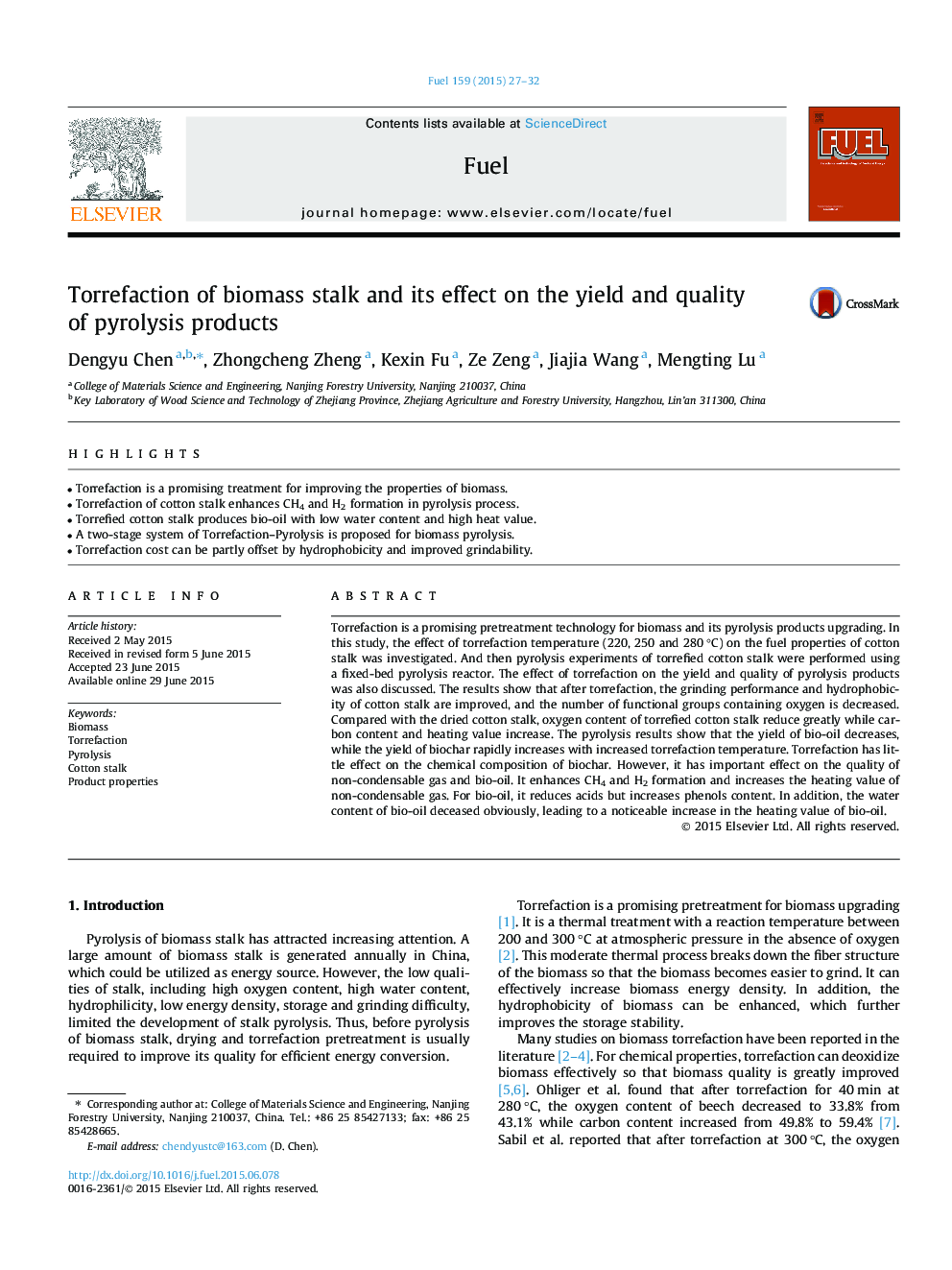| Article ID | Journal | Published Year | Pages | File Type |
|---|---|---|---|---|
| 6634556 | Fuel | 2015 | 6 Pages |
Abstract
Torrefaction is a promising pretreatment technology for biomass and its pyrolysis products upgrading. In this study, the effect of torrefaction temperature (220, 250 and 280 °C) on the fuel properties of cotton stalk was investigated. And then pyrolysis experiments of torrefied cotton stalk were performed using a fixed-bed pyrolysis reactor. The effect of torrefaction on the yield and quality of pyrolysis products was also discussed. The results show that after torrefaction, the grinding performance and hydrophobicity of cotton stalk are improved, and the number of functional groups containing oxygen is decreased. Compared with the dried cotton stalk, oxygen content of torrefied cotton stalk reduce greatly while carbon content and heating value increase. The pyrolysis results show that the yield of bio-oil decreases, while the yield of biochar rapidly increases with increased torrefaction temperature. Torrefaction has little effect on the chemical composition of biochar. However, it has important effect on the quality of non-condensable gas and bio-oil. It enhances CH4 and H2 formation and increases the heating value of non-condensable gas. For bio-oil, it reduces acids but increases phenols content. In addition, the water content of bio-oil deceased obviously, leading to a noticeable increase in the heating value of bio-oil.
Related Topics
Physical Sciences and Engineering
Chemical Engineering
Chemical Engineering (General)
Authors
Dengyu Chen, Zhongcheng Zheng, Kexin Fu, Ze Zeng, Jiajia Wang, Mengting Lu,
